

理心和会——李退溪的道德世界(国家社科基金后期资助项目)
¥40.80
李退溪是朝鲜朝*为重要的儒学家之一。本书以朝鲜儒学的一段公案—“四七之辩”始谈起,以文献考据和哲学分析为基本方法,重分析了李退溪的“理气互发”说和心学思想的理论渊源与后学影响。李退溪受《周易》和周敦颐《太极图说》中动静说的启发,推发了“理”之能“发四端”的可能性,由此建立了人性之善与天理之间牢不可破的联系。退溪心学的形成与宋、元、明时期儒学的多元化发展有关,是以朱子思想为根基对《心经附注》、《延平答问》的继承,强调“十六字心传”—道心对人心的统帅。 另外,本书还从文献流传的角度揭示了朱子学东传之路径及李退溪在其中的重要作用。


清代荀学史略(精) 中华书局出品
¥40.80
清代是荀学复活并逐渐走向兴盛的时代,清代的荀学研究也是荀学*为重要的一个环节。本书将清代荀学划分为清初、清中叶和晚清三个各具特色的时期,考察各时期荀学研究的特及时代背景、学术风气对该时期荀学研究的影响。在每个分期下,又对具有典型意义的问题作专题研究,以清楚展现其始末;对惠栋、戴震、汪缙、章太炎及维新派诸成员等于荀子义理颇有发挥、独成一家的学者,亦作专门探讨,以便睹其荀学思想之全貌。


杜威哲学的现代意义
¥40.80
刘放桐主编的《杜威哲学的现代意义》围绕“杜威哲学的现代意义”这个有着重要的理论意义和现实意义的问题展。从理论上说,它不仅涉及作为现代哲学之典型形态的杜威哲学本身,也涉及杜威哲学与整个西方哲学,特别是西方哲学从近代到现代转型的关系,可以说它是这种转型*有代表性的形态;*重要的是,它涉及与马克思主义哲学的对立统一关系,是现代西方各派哲学中与马克思主义哲学的关系*为密切的派别。希望本书能起到抛砖引玉的作用,以推动*多的学者展对杜威和实用主义哲学的研究。


中国儒学思想史 中华书局出品
¥40.80
本书共十五章,约34万字,以时代为经,以大量翔实可靠的资料为基础,简明扼要地梳理了中国儒学思想的发展脉络,阐明各时代儒学思想的内涵、特及转化动力,并特别分析了各时代儒学思想与科学技术之间的辩证关系,具有资料丰富、脉络清晰、论证有力等特。 正如作者所说:“我们的研究有三:一,对中国儒学思想的代表人物力求行实事求是的分析;二,重研究中国儒学思想发展的历史程;三,始研究儒学思想与中国古代自然科学。”“这部专著里将探索中国儒学的演变轨迹,把儒学与中国古代自然科学的复杂的、多方位的关系作为研究的重。”


博弈法则:历史与生活中的逻辑
¥40.80
博弈是通过选择合适的策略达到合意结果的过程。人们的工作和生活中充满各种各样的决策,因此充满追求利益最大化的博弈过程。了解了博弈的法则,我们就能经过分析和推理找到各方利益的关键,从而看清隐藏在事物表象背后的本质。 本书通过讲述历史和生活中的一系列小故事,阐明博弈法则是如何对事件的结果产生影响的。书中从为人处世、两性关系、商业成败、职场规则、大国竞争几方面展,以生动有趣的故事、清晰易懂的分析呈现了博弈法则在现实生活中的运用。

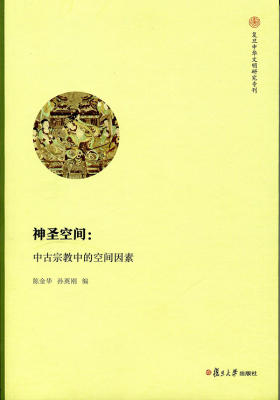
神圣空间:中古宗教中的空间因素
¥40.80
中国中古时代,宗教信仰兴起,外来的佛教、摩尼教、景教、琐罗亚斯德教等传入中国,本土的道教信仰勃兴,儒家学说也带有强烈的天人感应的宗教色彩。各种宗教文明的交融以及对政治、思想和日常生活的渗透,极大改变和丰富了历史画面。时间和空间是人类感知自我存在的基础,宗教信仰的兴起也因此重塑了中古时代人们的空间观念,与此同时,宗教信仰也在空间中展开,重塑了中古时代的历史面貌。在这一时期,中国的城市空间结构发生了巨大的变化。


韩非与法治(精) 中华书局出品
¥40.80
本书是夏海先生继《论语与人生》《老子与哲学》《孟子与政治》之后,又一部关于先秦诸子研究的力作,是对法家思想的集大成者韩非的研究。全书分为五个部分,计二十章。部分“韩非其人”,包括、二、三、四章,主要介绍韩非其人,以及同诸子百家尤其是法家的关系。第二部分“人性论”,包括第五、六、七、八章,以善与恶为框架,阐述韩非的人性思想,比较分析孟子性善论和荀子性恶论,认为韩非的好利恶害属于性恶论范畴。第三部分“法治论”,包括第九、十、十一、十二章,以德与法为框架,阐述韩非的法治思想,比较分析商鞅之法,认为韩非既有继承,更有创新和超越,着力补充完善了商鞅有法无术的缺陷。第四部分“术治论”,包括第十三、十四、十五、十六章,以君与臣为框架,阐述韩非的术治思想,比较分析申不害之术,认为由于《申子》一书大部分佚失,只能根据韩非的论述,补充完善了申不害有术无法的不足。第五部分“势治论”,包括第十七、十八、十九、二十章,以官与民为框架,阐述韩非的势治思想,比较分析慎到之势。


老子讲演录(人文大讲堂)
¥40.80
本书按《老子》八十一章分节解释,以老子哲学的“道”为和内核,着力阐发其形而上的人生智慧与存在境界,在老子那里,作为世界的原理,“道”既被视为存在的法则,也被理解为存在的方式。与之相涉,自然状态与“无为”之为、道的幽深与德之现实、为学与为道、本然与可能等方面,既彼此关联,又包含内在张力。全书呈现独特的文字魅力和思维品格,展现了老子对天、地、人的思考以及更广意义上道家的文化内涵。

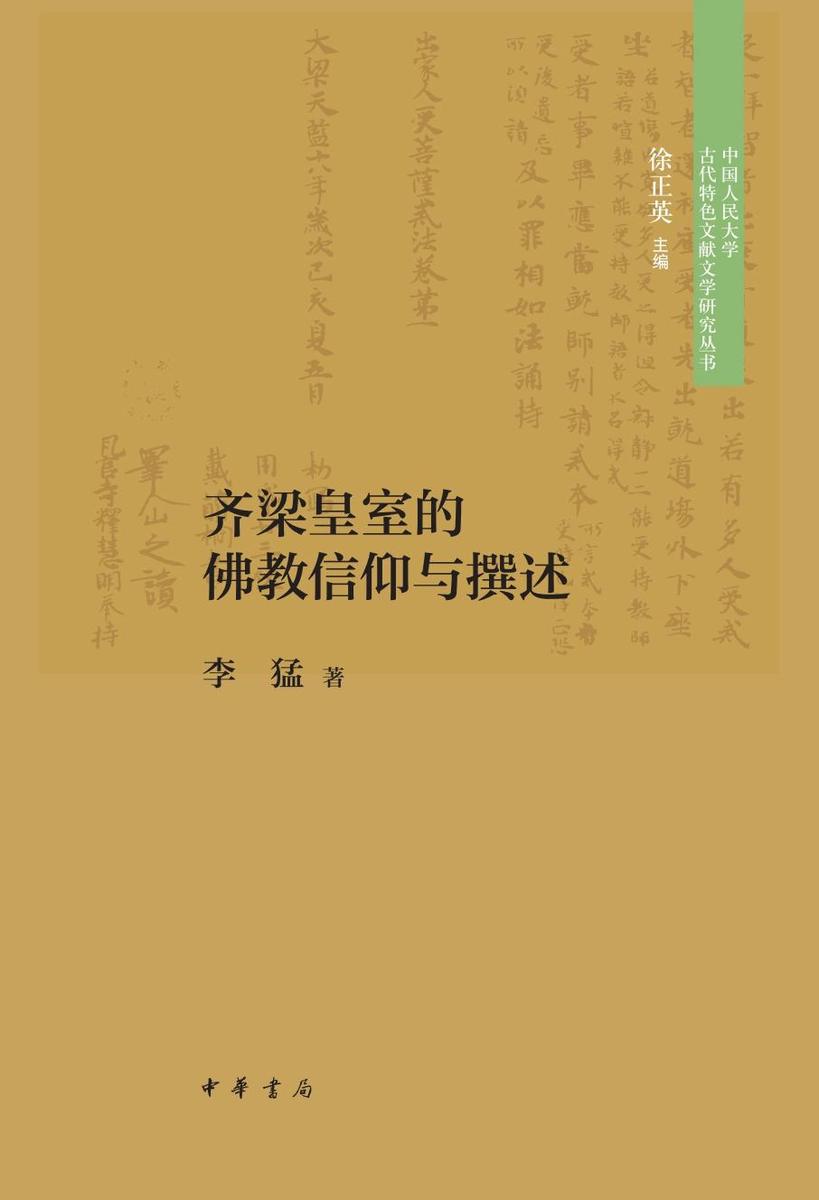
齐梁皇室的佛教信仰与撰述--中国人民大学古代特色文献文学研究丛书 中华书局出品
¥40.80
兰陵萧氏作为齐梁皇室,在南朝的政治史、佛教史以及文学史上都有独特的位置,历来都是南北朝文学、史学乃至哲学研究的热话题。《齐梁皇室的佛教信仰与撰述》一书不拘于学科限制,以晋唐佛教文献以及传世史部、集部文献为基础,以齐梁皇室的佛教活动与相关撰述为主要线索,融合文史,深讨论了齐梁时期的佛教、佛教影响下的士人思想变迁与诗文创作,以及内外典籍编撰等诸多领域的问题。 本书是对目前中古史研究领域细致分析史料、诗文等文本的一步延展和拓,动态地解读了佛教文献的文本变化,深度分析了其年代、层次、史源,并发掘佛教文献背后蕴含的丰富信息,对现有南朝文学史、佛教史、政治史乃至中古士族等领域的研究模式有所突破。

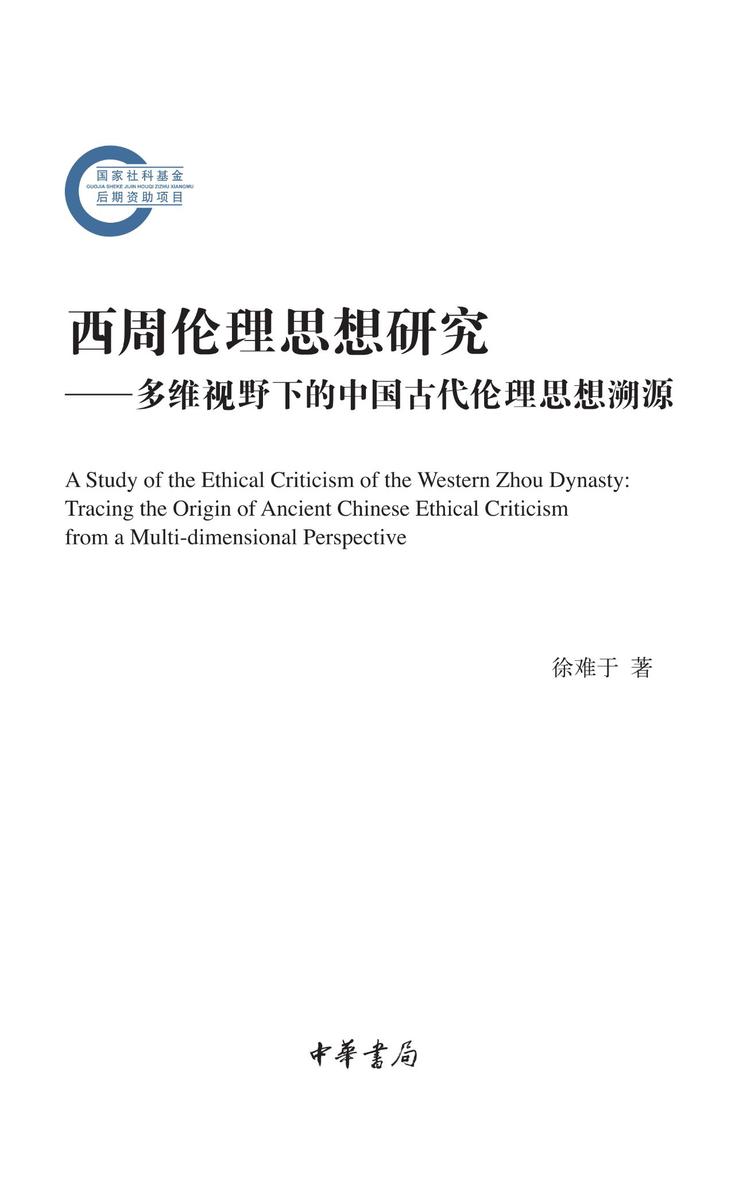
西周伦理思想研究--国家社科基金后期资助项目 中华书局出品
¥40.80
本书充分利用西周金文与传世文献史料,围绕宗教、伦理、政治互动的主线,对西周的孝友等血缘伦理思想,以及德、敬、肃、恭、勤、雍、和等政治伦理思想与善恶评价思想行宏观与微观的深探讨。在西周与古埃及的比较研究中,彰显西周“伦理思维发达”这一重要特征,并以双方族群格局差异为切,深探讨这一重要特征之成因。在西周与后世的比较视野下,围绕西周基本社会制度的伦理影响,深探研西周的“德治”思想及其“层级推衍治理”思想,从而揭示西周伦理政治思想的主要时代特征。


新四书与新儒学(中国哲学新思丛书)
¥40.80
儒家的仁义思想不只是由仁而义,还包括由义而仁,前者是孟子的“居仁由义”,是由道德而政治,后者是荀子的“处仁以义”,是由政治而道德,二者结合才是完整的仁义观。传统四书不足以反映儒学的完整面貌,不足以体现仁义的精神内涵,故需要有新的经典体系出现,这就是本书所提出的《论语》、《礼记》、《孟子》与《荀子》,合称“新四书”。在“新四书”中,孟荀既相互对立,又存在相互补充的可能与需要。孟子人性论更准确地理解应该是以善为性论,有利于突出道德主体,说明人的道德实践;荀子人性论并非传统所认为的性恶论,而是性恶心善说,适合说明礼义、制度的建立,易于解释人的政治实践。统合孟荀,方可创新儒学。

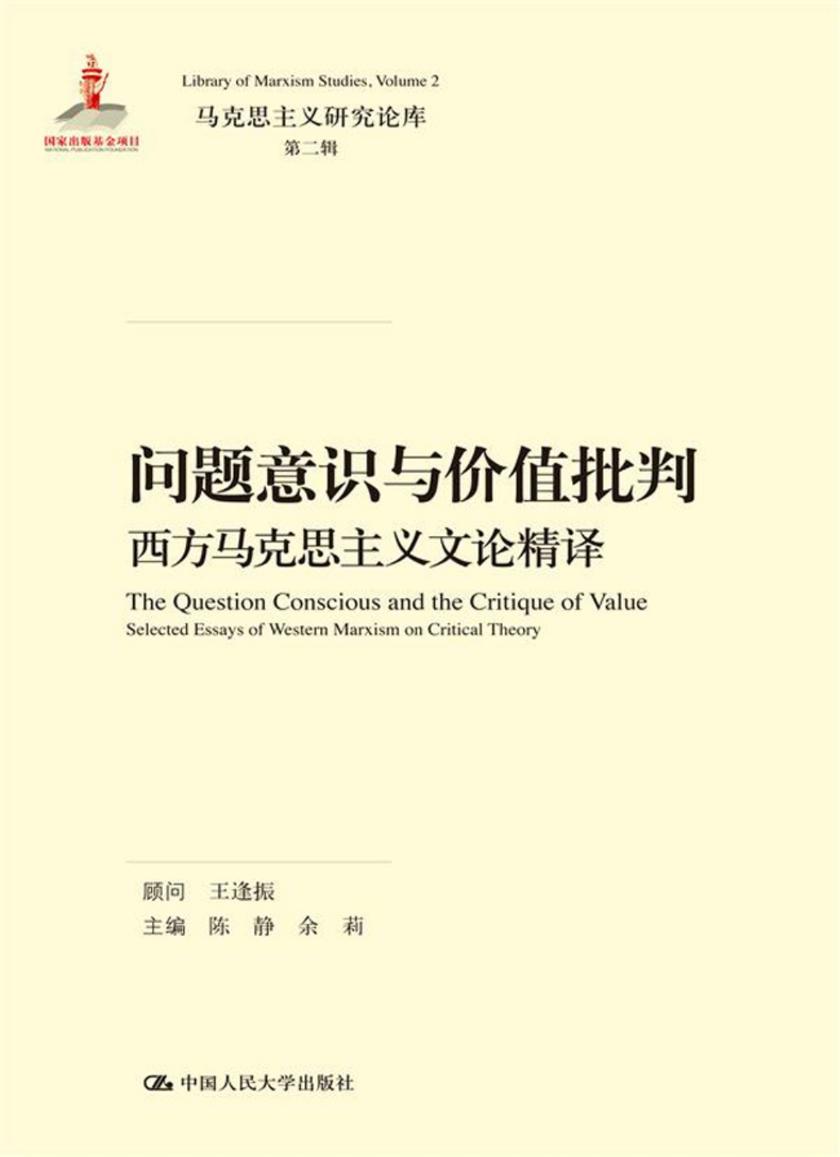
问题意识与价值批判:西方马克思主义文论精译(马克思主义研究论库·第二辑)
¥40.80
西方马克思主义文论研究始终对现实有着强烈的干预意识,本书以文学理论为依托,以文学理论关照现实生活的各个方面,在马克思主义理论框架下展对当今社会问题的研究与批判,内容涉及对西方主流价值观的批判,对经典文学和文化研究概念的重新阐发,对非主流文学作品的研究,对理论问题的讨论等等。本书收詹姆逊、伊格尔顿、迈克尔?哈特等国外著名学者的理论文章,体现了西方文论研究的*成果,不仅能极大地拓展国内学者的研究视野,也能够让国内学者感受到西方同行的学术精神。


生活中的逻辑学(修订版)
¥40.80
生活中的逻辑学(修订版)

Bobok
¥40.79
Ivan Ivanovitch attends the funeral of a casual acquaintance and falls to contemplation in the graveyard. He hears the voices of the recently deceased and buried, and he listens to their conversation. They discuss card games and political scandals. As the deceased entertain themselves by revealing all of the shameful details of their earthly lives, Ivan Ivanovitch sneezes.

Tales of Dostoyevsky, Volume 1
¥40.79
Dostoyevsky is the only psychologist from whom I had something to learn', remarked Friedrich Nietzsche. 'He ranks among the most beautiful strokes of fortune in my life'. Discover the universal truths and wisdoms of Dostoyevsky in this volume of Dostoyevsky's tales including: An Honest Thief, The Heavenly Christmas Tree, The Peasant Marey.
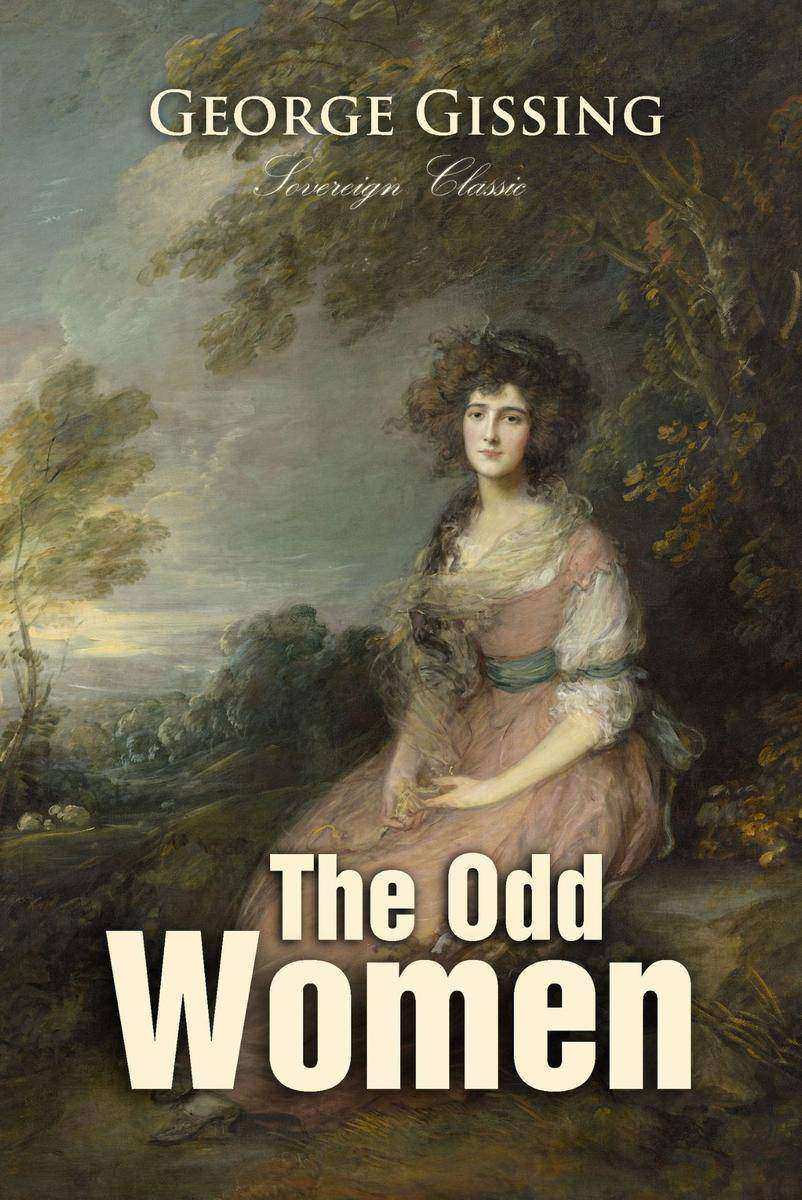
The Odd Women
¥40.79
Alice and Virginia Madden move to London and renew their friendship with Rhoda, an unmarried bluestocking. She is living with the also unmarried Mary Barfoot, and together they run an establishment teaching secretarial skills to young middle-class women remaindered in the marriage equation.
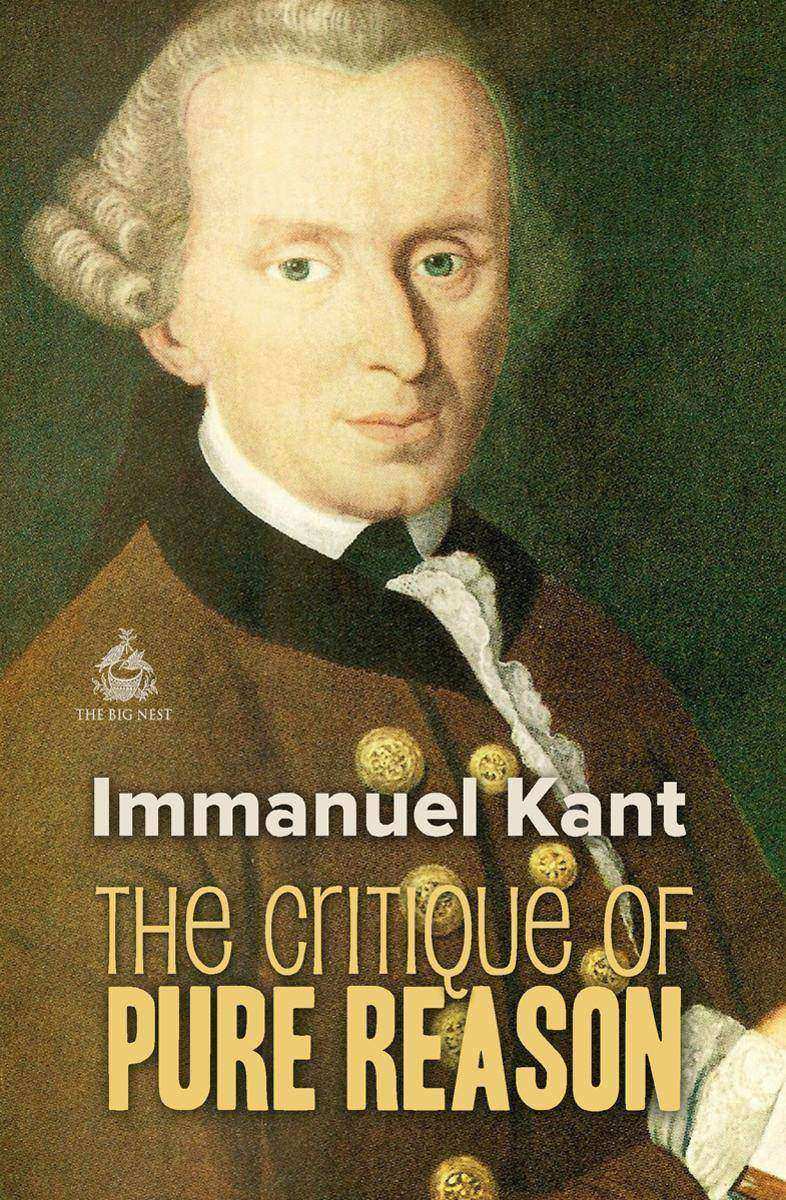
The Critique of Pure Reason
¥40.79
One of the most influential works in the history of philosophy. Known as Kant's First Critique, dealing with questions concerning the foundations and extent of human knowledge, Kant builds on the work of empiricist philosophers such as John Locke and David Hume, as well as taking into account the theories of rationalist philosophers such as Gottfried Wilhelm Leibniz and Christian Wolff.
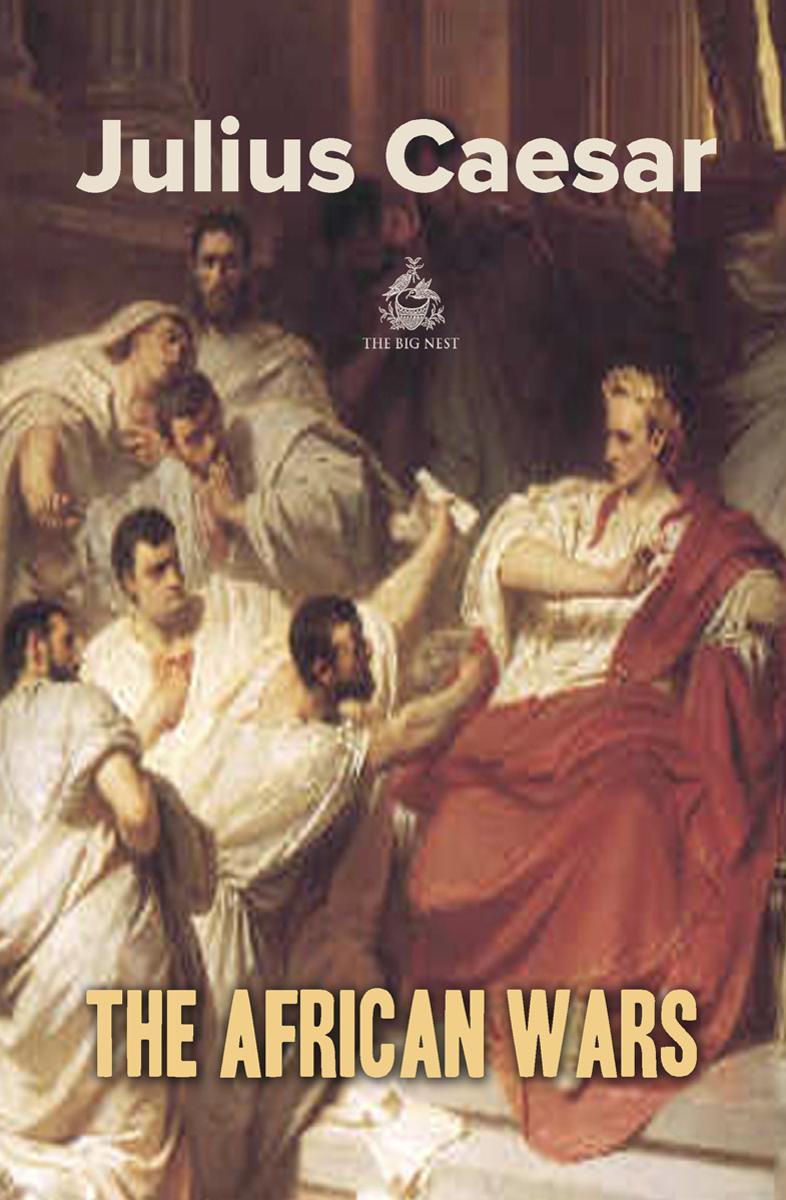
The African Wars: English and Latin Language
¥40.79
Caesar, advancing by moderate journeys, and continuing his march without intermission, arrived at Lilybaeum, on the 14th day before the calends of January. Designing to embark immediately, though he had only one legion of new levies, and not quite six hundred horse, he ordered his tent to be pitched so near the sea-side that the waves lashed the very foot of it. This he did with a view that none should think he had time to delay, and that his men might be kept in readiness at a day or an hour's warning. Though the wind at that time was contrary, he nevertheless detained the soldiers and mariners on board, that he might lose no opportunity of sailing; the rather, because the forces of the enemy were announced by the inhabitants of the province, to consist of innumberable cavalry not to be numbered; four legions headed by Juba, together with a great body of light-armed troops; ten legions under the command of Scipio; a hundred and twenty elephants, and fleets in abundance. Yet he was not alarmed, nor lost his confident hopes and spirits. Meantime the number of galleys and transports increased daily; the new-levied legions flocked in to him from all parts; among the rest the fifth, a veteran legion, and about two thousand horse.
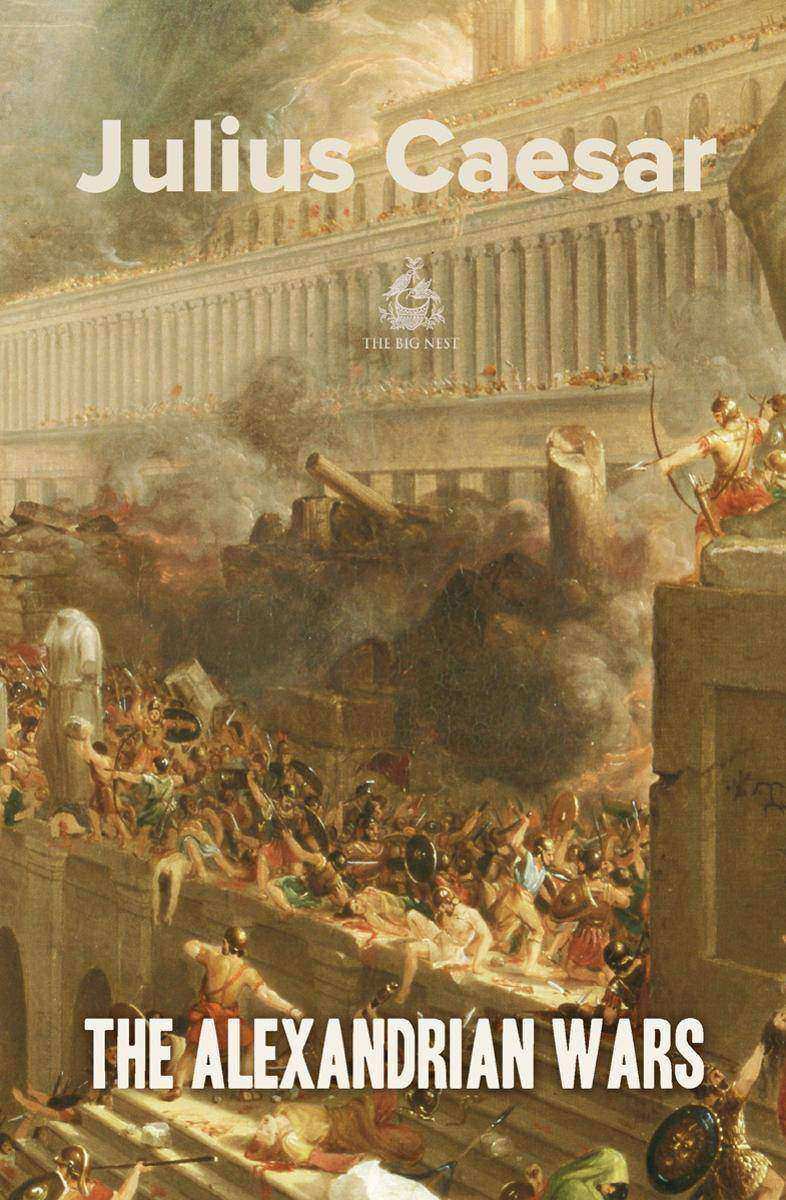
The Alexandrian Wars
¥40.79
When the war broke out at Alexandria, Caesar sent to Rhodes, Syria, and Cilicia, for all his fleet; and summoned archers from Crete, and cavalry from Malchus, king of the Nabatheans. He likewise ordered military engines to be provided, corn to be brought, and forces dispatched to him. Meanwhile he daily strengthened his fortifications by new works; and such parts of the town as appeared less tenable were strengthened with testudos and mantelets. Openings were made in the walls, through which the battering-rams might play; and the fortifications were extended over whatever space was covered with ruins, or taken by force. For Alexandria is in a manner secure from fire, because the houses are all built without joists or wood, and are all vaulted, and roofed with tile or pavement.
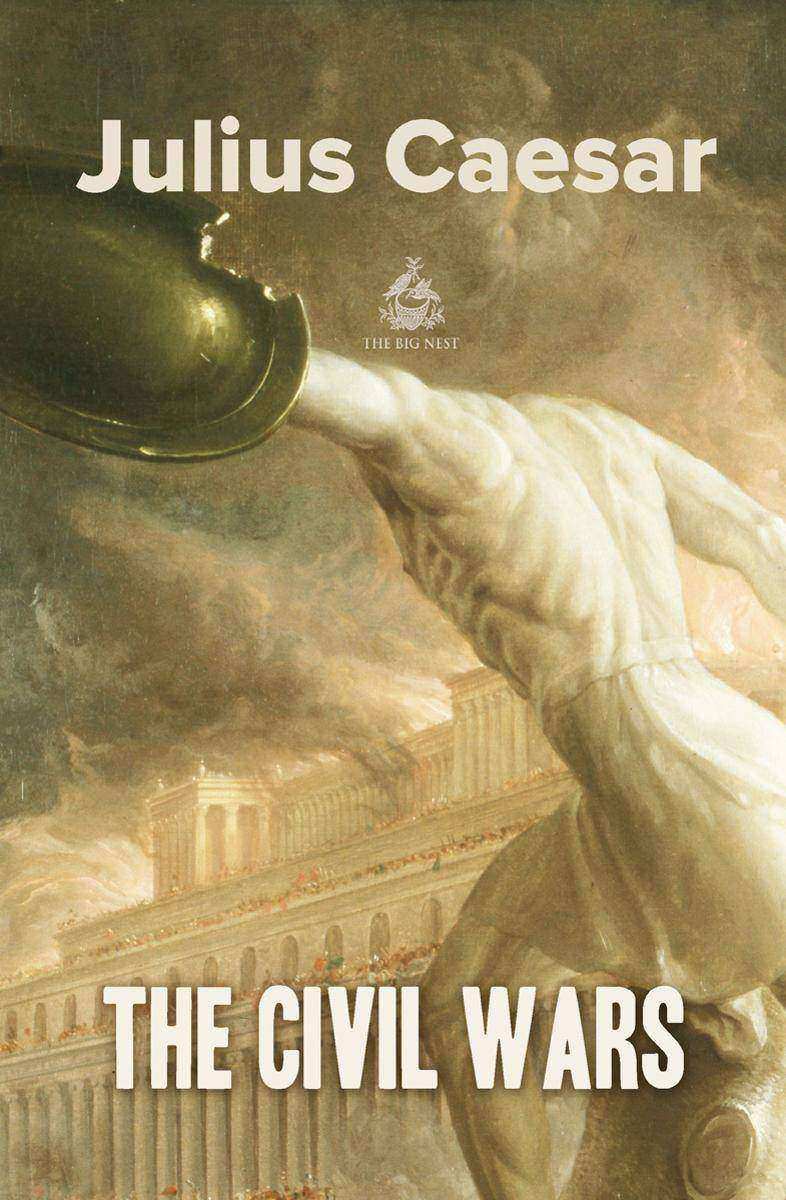
The Civil Wars, Book 1
¥40.79
Caesar, although he was not as yet at open enmity with him, determined neither to aid him by his influence nor openly oppose him on this occasion. But the consuls Lentulus and Marcellus, who had previously been on unfriendly terms with Caesar, resolved to use all means in their power to prevent him from gaining his object. Marcellus in particular did not hesitate to offer Caesar other insults. Caesar had lately planned the colony of Novumcomum in Gaul: Marcellus, not content with taking from it the right of citizenship, ordered the principal man of the colony to be arrested and scourged at Rome, and sent him to make his complaints to Caesar: an insult of this description had never before been offered to a Roman citizen.

仪礼丛考【试读本】
免费
《仪礼》古称《礼经》,为儒家“五经”之一,记载了中国先秦时期的冠昏、丧祭、乡射、朝聘等礼典仪式,被后世誉为礼书之祖,于“三礼”中素称难读。 《仪礼丛考》一书分为四章:宫室研究、仪节研究、礼例研究、礼义研究。宫室研究部分通过与三代宫室结构的对比,揭示《仪礼》宫室结构存在的独特性。仪节研究部分以带面,借助对 “席”、“左还”、“右还”、“门闑”等具体仪节的考察,客观再现古礼实操的情况。礼例研究基于对礼经中“布席例”的考辨,系统解构空间方位与人神尊卑之间的联系。礼义部分透过《仪礼》中的成人、婚姻、死亡、祭祀等观念,发掘礼制背后更深层次的社会意义。 全书考证精审,括例贯通,并辅以数十幅图示,使三代建筑规制、揖让周旋之礼跃然纸上,兼具学术深度与实用价值。




 购物车
购物车 个人中心
个人中心



